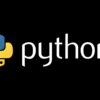Gathering data can be very beneficial to many businesses for a variety of reasons. With enough data, companies can make critical business decisions. Data can help business owners monitor market trends, product pricing, and brand awareness.
Web scrapers have been developed and can be used to automate the task of gathering vast amounts of data quickly. However, there has been some debate over the ethics and legality of using scraping tools.
In this article, we’ll be introducing web scraping and parsing data with the use of scraping tools linked to proxies from a reliable provider such as Smartproxy. Finally, we will also cover the legality of these tools and how to use them ethically.
What Is Web Scraping?
Web scraping is a process where users collect data from websites and compile it into a single format that can be analyzed. There are many scraping tools available to make the process even simpler. Alternatively, users with some programming knowledge can also build their own scraping tools, and there is open-source code available to get you started. When creating your own scraper, it is essential to remember to include a parser for parsing data.
Parsing data is an essential step in web scraping, as this is what puts the data into a format that can be understood and analyzed. The web scraper collects the data, usually in code snippets, and then the parser converts the code to a format that is legible and easy to analyze.
A web scraper works most effectively when combined with a residential proxy. A proxy can be used to hide your IP address and keep you from being tracked while online. These proxies can also be used to send multiple scraping requests without slowing down your connection speed. Using a residential proxy also decreases your chances of being banned from sites, thus leading to more effective data collection.
Ethical Use of Web Scraping
If you plan to use web scraping or harvesting for your business, it is vital to collect and use the data ethically. Web scraping and using information is legal if you only collect public data that isn’t copyrighted. In other words, if you were to browse a website manually and write down the available products and prices, that is the type of data you can ethically collect and use.
You can collect data to be analyzed and used to help you improve your business offerings. This can be to analyze and compare product prices, monitor trends or even track your online presence. These are all ethical uses of data that has been collected.
There are a few ways to ensure that you scrape data ethically. One way to ensure that you’re scraping ethically is to ensure that your bots (scraping tools) follow the website’s rules. These rules are usually included in the robot.txt file of the website code. By following these rules, you are collecting the data you need ethically.
Not only do you need to collect data ethically. You also have to use the data ethically. Using the data for analysis to make better business decisions is an ethical use of data that has been gathered. However, collecting data and passing it off as your own is not ethical. The same goes for any video or images collected. You cannot use these for your own purposes without permission from the owner, and even then, it is always good to give credit to the original creator.
Forms of Web Scraping That Is Illegal
Unfortunately, there are ways to collect and use data that isn’t ethical. This should be avoided at all times to keep yourself and your business safe and out of trouble. There are a few ways to collect and use data that is unethical. Before you accidentally find yourself in this situation, here is a list of unethical behaviours when gathering and using data.
- Never collect and use personal data for your purposes.
- Never forcefully collect data if the website’s rules disallow it.
- Never attempt to collect data that is available through a login process.
- Never try to pass off collected data as your own.
- Never send multiple scraping requests to the same website, as this will slow down the other website, causing them issues.
Final Thoughts
Collecting public website data can be a great way to get information that can benefit your business. By ethically collecting data, you can make informed business decisions to help guide your business to success. As long as you collect and use the data ethically, by only collecting public information, not trying to pass it off as your own and respecting the rules of the websites you are harvesting, you will be in the clear.







